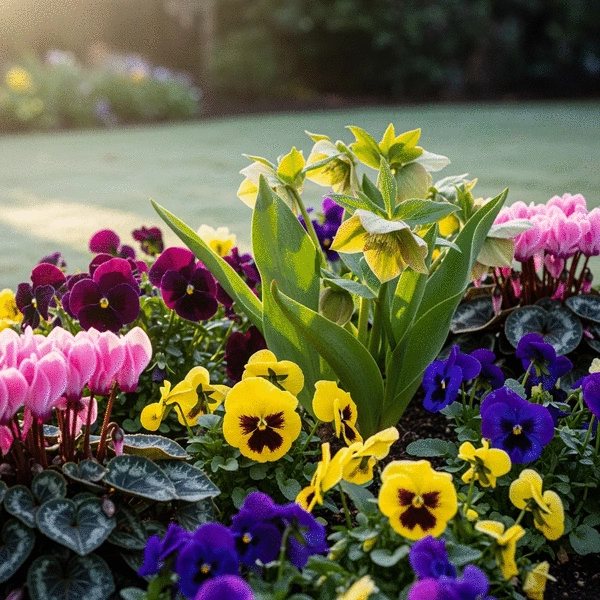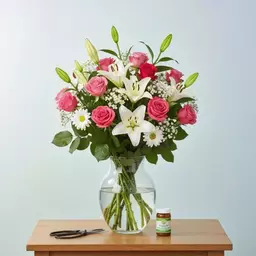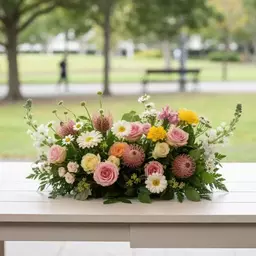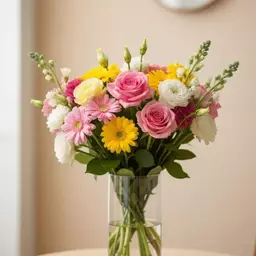Winter gardening in Melbourne presents a unique opportunity to explore the resilience of plants amidst fluctuating temperatures and varied weather conditions. Understanding these dynamics can transform your approach to nurturing your garden during the colder months.
What You Will Learn
- Melbourne's winter temperatures typically range from 6°C to 14°C, offering a unique environment for a variety of plants.
- Understanding frost risks is crucial; covering plants with frost cloths and grouping pots can provide necessary protection.
- Effective moisture management is essential—check soil drainage and only water when necessary to prevent rot.
- Pests like aphids and snails can be problematic in winter; encouraging beneficial insects and using eco-friendly insecticidal soap can help manage these threats.
- Engaging with local gardening communities can enhance your winter gardening experience and provide valuable resources.
Melbourne's Unique Winter Gardening Climate
The following compares key temperatures and conditions for winter gardening in Melbourne, highlighting essential factors for plant care. For more detailed insights into local flora, consider exploring resources on spring flowers to grow in Pakenham, which often offers a prelude to winter preparations.
Temperature Range
Typically ranges from 6°C to 14°C during winter months (June to August).
Weather Patterns
Mild and sunny days promote growth while frost poses risks to delicate blooms.
Moisture Management
Excess moisture combined with cold can lead to rot; monitor soil drainage carefully.
Frost Protection Strategies
Covering plants, grouping pots, and using mulch are effective strategies.
Understanding the Unique Melbourne Climate for Winter Gardening
Gardening in Melbourne during winter can feel like a fun challenge! You see, our climate is quite unique, with mild temperatures and variable conditions that can surprise even the most seasoned gardeners. It’s important to understand how these weather patterns impact our plants, especially if you're looking to keep your garden vibrant even in the colder months.
Melbourne's winter weather is not just about chilly days; it often fluctuates, with some days feeling quite warm and others dipping into chilly temperatures. This mildness allows for a variety of plants to thrive, but the unpredictability can also lead to challenges. For instance, some plants may bloom happily, while others struggle against the occasional frost. Knowing the specifics will help you choose the right flowers for your garden!
Melbourne's Winter Weather Patterns and Their Impact on Plants
Understanding the weather patterns is essential for successful winter gardening in Melbourne. The winter months, from June to August, typically bring moderate temperatures ranging from 6°C to 14°C. However, we also experience rain and occasionally, a frosty morning. This combination can be a double-edged sword for your plants. For tips on maintaining floral health, check out our guide on caring for fresh flowers at home.
When selecting plants, consider their resilience to these conditions. Some varieties prefer cooler weather, while others may suffer if temperatures drop too low. Here’s a quick list to keep in mind:
- Mild and sunny days are great for growth.
- Frost can damage delicate blooms.
- Rainy days increase moisture, which can lead to rot in some plants.
Explaining Mild and Variable Winter Conditions
In Melbourne, our winters aren’t consistent. One day you might be basking in sunshine, and the next, you’re greeted by rain and wind. This variable climate means that understanding your plants is crucial. Some blooms require less water, while others might need a little extra love on those sunny days to thrive.
To make the most of this variability, I recommend regularly checking the weather forecast and adjusting your care routine accordingly. Being proactive will ensure that your garden can withstand the quirks of Melbourne's winter!
Identifying Frost Risks and Moisture Management Needs
Frost can be a sneaky adversary in Melbourne gardens, often appearing overnight to catch unprepared gardeners off guard. It’s crucial to identify which plants are at risk and how to protect them during colder nights. Some strategies include:
- Covering plants with frost cloths on chillier nights.
- Grouping pots together to create warmth.
- Using mulch to retain moisture and provide insulation for roots.
Moisture management is equally important! Too much moisture combined with cold can lead to rot. So, be sure to check soil drainage and only water when necessary. With a little planning, you can keep your winter blooms healthy and flourishing! To learn more about local expert opinions, you can read Pakenham florist reviews and insights.
Quick Summary
Here's a brief recap of the key points discussed so far:
- Melbourne's winter climate features mild temperatures and variable weather, affecting plant selection and care.
- Understanding frost risks and moisture management is crucial for protecting your winter blooms.
- Regularly inspecting plants for pests and diseases can help maintain a healthy garden during the colder months.
Frequently Asked Questions About Winter Gardening in Melbourne
- What are the typical winter temperatures in Melbourne?
Melbourne's winter temperatures usually range from 6°C to 14°C, creating a unique environment suitable for various resilient plants.
- How can I protect my plants from frost?
You can protect plants from frost by covering them with frost cloths, grouping potted plants together for warmth, and applying mulch to insulate roots and retain moisture.
- Why is moisture management important during winter?
Excess moisture combined with cold temperatures can lead to root rot. It's crucial to check soil drainage and only water when necessary to prevent overwatering.
- What common pests should I watch out for in winter?
Common winter pests include aphids, snails, and powdery mildew. Regular inspection, encouraging beneficial insects, and using eco-friendly insecticidal soaps can help manage these issues.
- How can local gardening communities help me?
Engaging with local gardening communities provides valuable resources, shared experiences, and tailored advice, enhancing your winter gardening success.
Addressing Common Questions About Winter Flower Care
What Are the Most Common Pests and Diseases?
As we nurture our winter blooms, it's crucial to keep an eye out for pests and diseases that can sneak in during the colder months. Common culprits include aphids, snails, and powdery mildew, which can be especially troublesome for delicate flowers like pansies and cyclamen.
To effectively manage these threats, I recommend implementing a few simple strategies. Start by regularly inspecting your plants for any signs of infestation, such as wilting leaves or spotted foliage. If you notice any issues, here are some steps you can take:
- Encouraging Beneficial Insects: Ladybugs and lacewings can help control aphid populations naturally.
- Using Insecticidal Soap: This eco-friendly option can effectively eliminate pests without harming your plants.
- Implementing Good Hygiene: Clear away any dead leaves or debris, as these can harbor pests and diseases. For more tips on general plant health, consider exploring resources on floral designs for corporate events, which often touch upon maintaining bloom quality.
How Can I Protect My Plants from Frost?
Frost can be a real concern during Melbourne’s winter. It's important to take steps to protect your plants from frost damage, especially if you want those vibrant flowers to thrive! Luckily, there are several DIY solutions you can try at home.
Start by keeping an eye on the weather forecast. If a frost is predicted, here are some effective protection strategies:
- Covering Plants: Use cloths or frost blankets to shield your plants from harsh temperatures.
- Mulching: Adding a thick layer of mulch helps insulate the roots and maintain soil warmth.
- Watering Before Frost: Moist soil retains heat better than dry soil, so give your plants a good drink before a cold night.
Summarizing Key Takeaways and Next Steps for Winter Bloom Care
Recap of Essential Tips for Successful Winter Gardening
As we embrace the beauty of winter blooms, it's essential to adapt our gardening practices to Melbourne's unique climate. Remember, keeping a close watch for pests, protecting your plants from frost, and adjusting your watering techniques are all vital for ensuring your flowers thrive in the cooler months.
Engaging with local resources and communities can also enrich your gardening experience. The Pakenham Florist Guide is here to help connect you with knowledgeable florists who can provide tailored advice for your winter gardening needs. Isn't it wonderful how a community can come together to share knowledge and tips?
Encouragement to Engage with Local Gardening Communities
I'd love for you to share your experiences and insights! Whether it’s a unique trick you’ve learned for keeping your blooms vibrant or a favorite winter flower, your stories can inspire others. Joining local gardening events or workshops can open up fantastic opportunities to meet fellow gardening enthusiasts and learn together. After all, gardening is not just about planting flowers; it's about building connections and creating a blossoming community! For further local insights and services, consider checking out local florists for Pakenham weddings.
Let’s celebrate the joy of winter gardening by sharing our stories and tips—because together, we can all grow and thrive in the beautiful world of floristry!
Recap of Key Points
Here is a quick recap of the important points discussed in the article:
- Melbourne's winter climate is variable; temperatures range from 6°C to 14°C, making plant selection crucial.
- Understand the impact of weather patterns: mild days promote growth while frost can damage delicate blooms.
- Monitor frost risks by covering plants, grouping pots, and using mulch for insulation and moisture retention.
- Regularly check for pests like aphids and powdery mildew; encourage beneficial insects and maintain good plant hygiene.
- Adjust watering practices, especially before frosty nights, to help retain soil warmth and protect plant roots.
- Engage with local gardening communities for shared tips and support to enhance your winter gardening experience.




